Description
From its original presentation being published in an 1861 Massachusetts newspaper, to its
appearance in a 1986 issue of “The Gun Report”, this sword has a very well-documented,
interesting and unique history. This sword was presented to Lt. Edwin F. Richardson on
September 25, 1861, its presentation being published at the time in the “Cambridge
Chronicle”. Richardson was elected as an officer in the first company organized in
Massachusetts for the Civil War, when a call for volunteers was published in the Chronicle
on January 5, 1861, before the firing on Ft. Sumter. The company was assigned to the 3rd
Massachusetts Infantry, and designated as Company C, sailing from Boston to Ft. Monroe
on April 18, 1861, from where it proceeded to the Gosport Naval yard in Virginia to assist in
the destruction of the buildings and supplies to prevent them from falling into the hands of
the Confederacy. As a 3 month unit, the regiment returned to Cambridge and was
disbanded with much fanfare in July of 1861. Richardson, vowing that “he was determined
to fight till the war was over, and if need be he would leave his bones to bleach on Southern
soil”, then assumed recruiting duties for a company in Cambridge, which became the
“Wellington Guards”, to which Richardson was promoted as 1st Lieutenant. At this time,
Richardson was presented with this sword, with the Chronicle printing the presentation from
Reverend James O. Murray: “I present you this sword in the name and in behalf of the
citizens of Cambridge, it is with assurance that it will never rust in its scabbard. We rely on
you that no stain of dishonor shall ever dim or tarnish its glittering blade.” This may have
been Richardson’s proudest moment, but things were about to change for the worse…..
The sword is a standard US Model 1850 Foot Officer’s Sword, by Palmers & Bachelders of
Boston, and so marked on the spine of the blade. The 31 ½” single-fullered blade is
profusely etched with stands of arms, scrolling foliage,”US”, an eagle, and Union shield.
Brass guard pierced and decorated with scrolling foliage; Phrygian helmet-shaped pommel
decorated with a shield surrounded by a border of stars and foliage. The grip is of leather
with alternating single and twisted double-strand brass wire wrap. Brown iron scabbard with
brass mounts, the throat mount inscribed “Presented/to/E.F. Richardson,/by the/Citizens of
Cambridge./1861″, reverse stamped “PALMERS & BACHELDOR/BOSTON/U.S.A.
REGULATION”.
The sword is a standard US Model 1850 Foot Officer’s Sword, by Palmers & Bachelders of
Boston, and so marked on the spine of the blade. The 31 ½” single-fullered blade is
profusely etched with stands of arms, scrolling foliage,”US”, an eagle, and Union shield.
Brass guard pierced and decorated with scrolling foliage; Phrygian helmet-shaped pommel
decorated with a shield surrounded by a border of stars and foliage. The grip is of leather
with alternating single and twisted double-strand brass wire wrap. Brown iron scabbard with
brass mounts, the throat mount inscribed “Presented/to/E.F. Richardson,/by the/Citizens of
Cambridge./1861″, reverse stamped “PALMERS & BACHELDOR/BOSTON/U.S.A.
REGULATION”.
Three days after the sword’s presentation, Richardson’s company was assigned to the
22nd Massachusetts Infantry, under Colonel Henry Wilson, a noted US Senator and later
Vice President under Grant. They soon embarked to Washington and then on into Virginia
where they prepared for the siege of Yorktown. Upon the Confederate abandonment of
Yorktown, the regiment took possession of the deserted works, suffering their worst
casualties to date from mines and booby traps laid by the retreating Confederates. They
took part in the battle at Hanover Court House and set up camp nearby, where
Richardson’s career took a disastrous turn. On June 5, 1862, he was assigned as officer of
the guard for the night. When relieved in the morning he was found in a state of gross
intoxication, for which he was brought up on charges to be cashiered from the army. His
colonel recommended he be allowed to resign in exchange for the charges being dropped,
which Richardson did. He left the regiment and the army in disgrace, returning to
Cambridge. No doubt this haunted him in his home town, from where he had received this
sword, and on which he had left a stain of dishonor. This episode is reminiscent of Ulysses
Grant’s resignation due to drinking just 8 years earlier while a captain at Ft. Humboldt in
California, though it would lead to a much different outcome.
A year and a half later, on December 11, 1863, Richardson enlisted as a private in the 56th
Massachusetts to regain his honor. He saw his first action at the Battle of the Wilderness
on May 6, the regiment suffering about 85 casualties. After a short rest, the regiment was
involved in the fighting at Spotsylvania Court House from May 12, 1864 until the 18th, where
it suffered over 100 more casualties. In their final charge on the 18th, Richardson was
struck in the arm by a Minie ball and received a massive wound from grape shot in the right
leg. Having received little or no medical attention for a week, he was finally taken to the
General Hospital in Alexandria, where he died shortly thereafter. His honor was regained
by this final and supreme sacrifice.
A year and a half later, on December 11, 1863, Richardson enlisted as a private in the 56th
Massachusetts to regain his honor. He saw his first action at the Battle of the Wilderness
on May 6, the regiment suffering about 85 casualties. After a short rest, the regiment was
involved in the fighting at Spotsylvania Court House from May 12, 1864 until the 18th, where
it suffered over 100 more casualties. In their final charge on the 18th, Richardson was
struck in the arm by a Minie ball and received a massive wound from grape shot in the right
leg. Having received little or no medical attention for a week, he was finally taken to the
General Hospital in Alexandria, where he died shortly thereafter. His honor was regained
by this final and supreme sacrifice.
Sword in very good condition, the blade mostly bright; etching clear and crisp. Brass guard
with some of the gilt remaining, the grip with fine original leather and wire. Leather blade
washer. Scabbard with some scattered dings and minor dents, retaining nearly all of the
original brown on the body. CDV sharp and clear, the reverse with later handwritten
“— RICHARDSON/ THIS PICTURE LOCATED/IN SACRAMENTO IN 1959/WITH HIS
SASH”
Included is a binder of research information on Richardson and the sword, as well as the
original CDV depicting an officer in uniform with his sword. Although represented to us as a
photo of Richardson, we are not certain it is the same Richardson who owned the sword.
The sword, CDV, magazine, and research binder from the George Oldenbourg Collection,
and included with purchase.

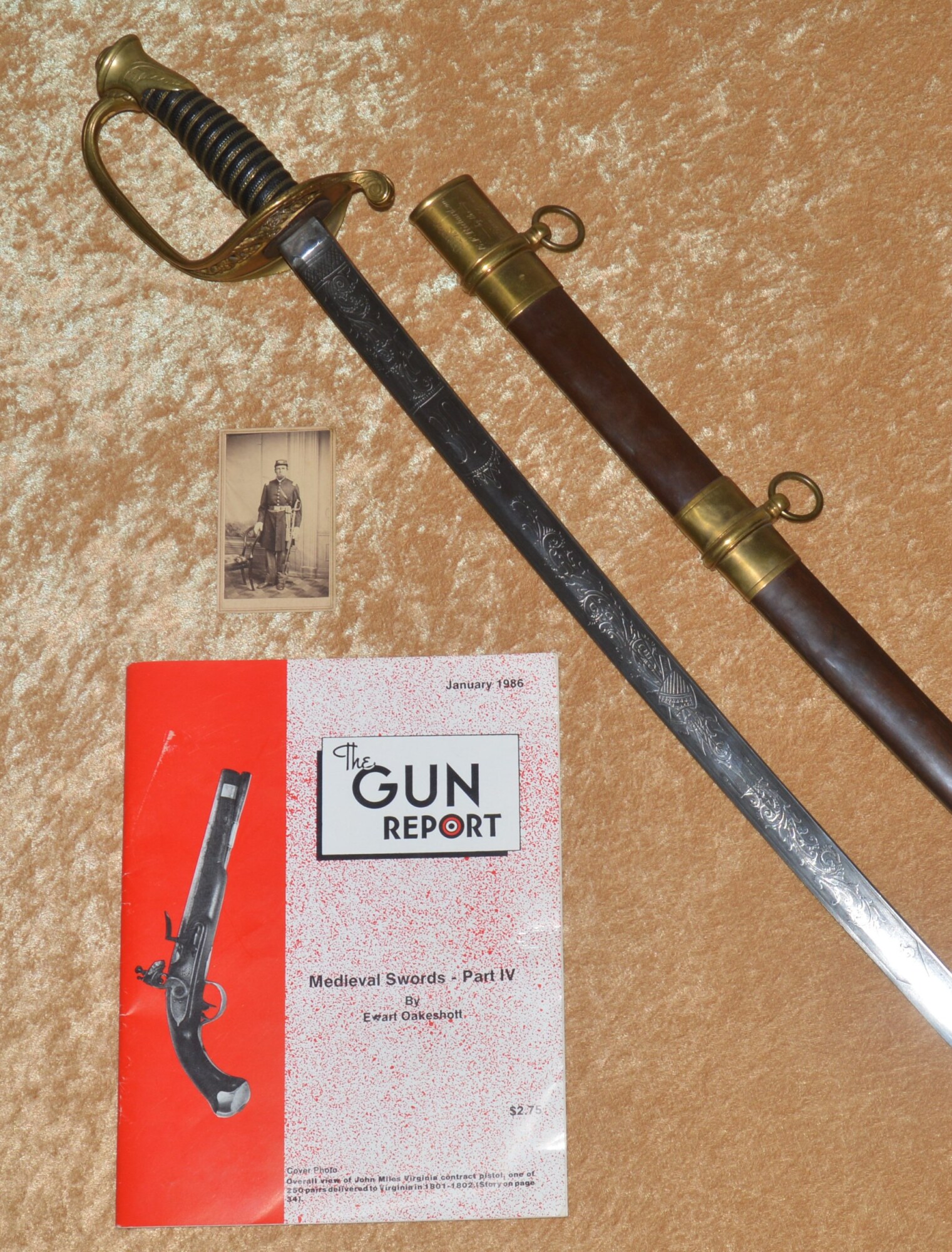
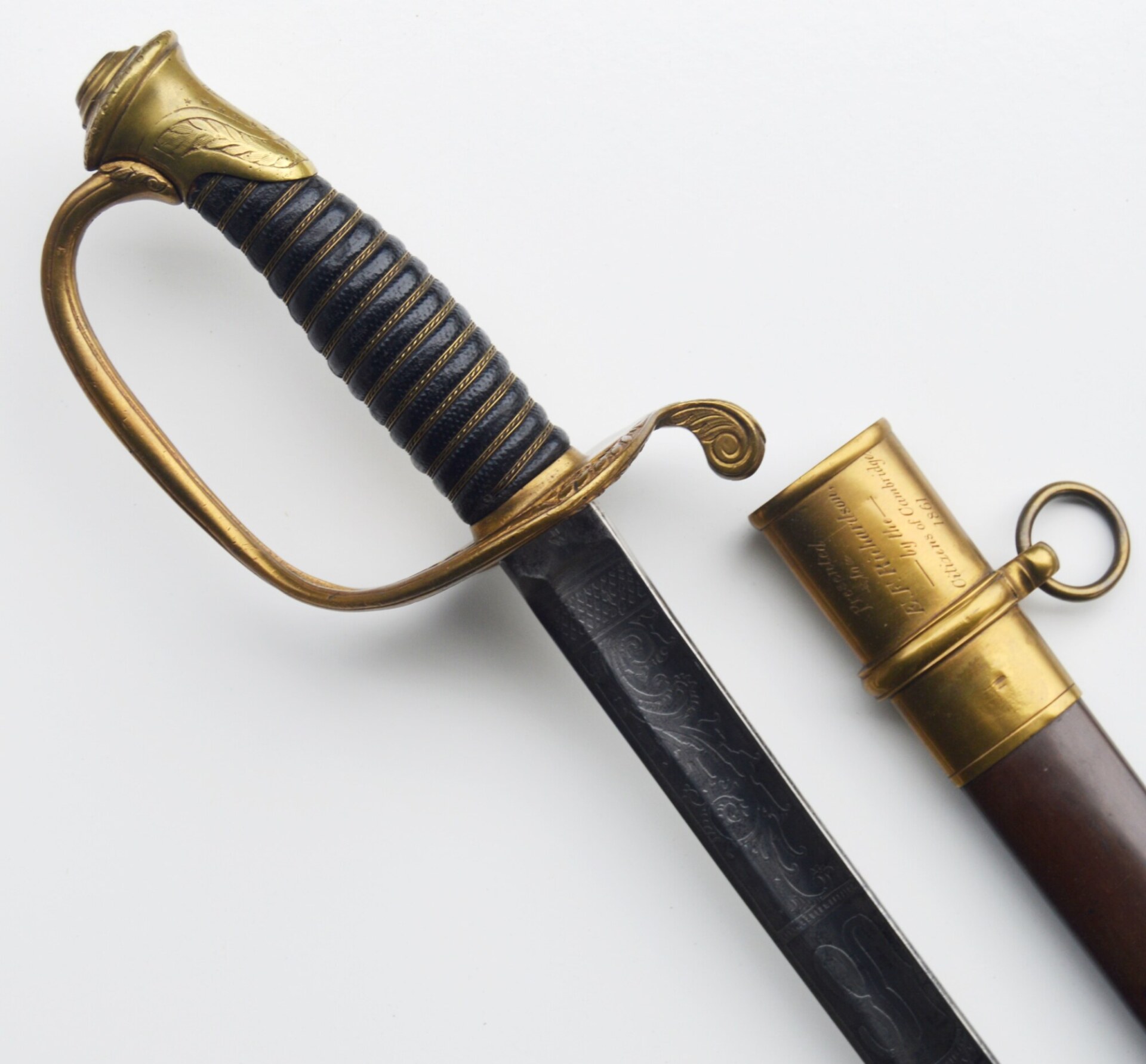
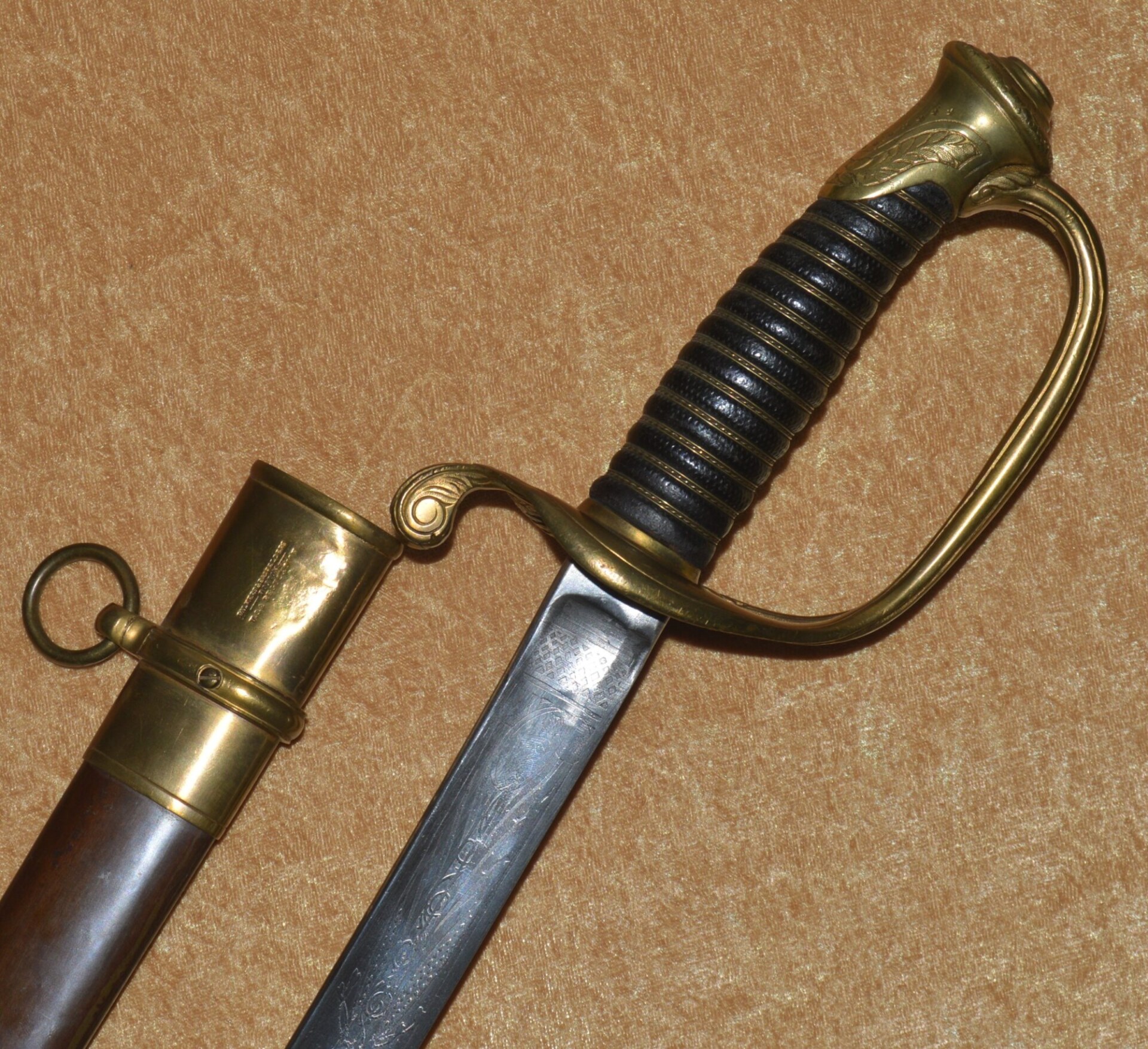
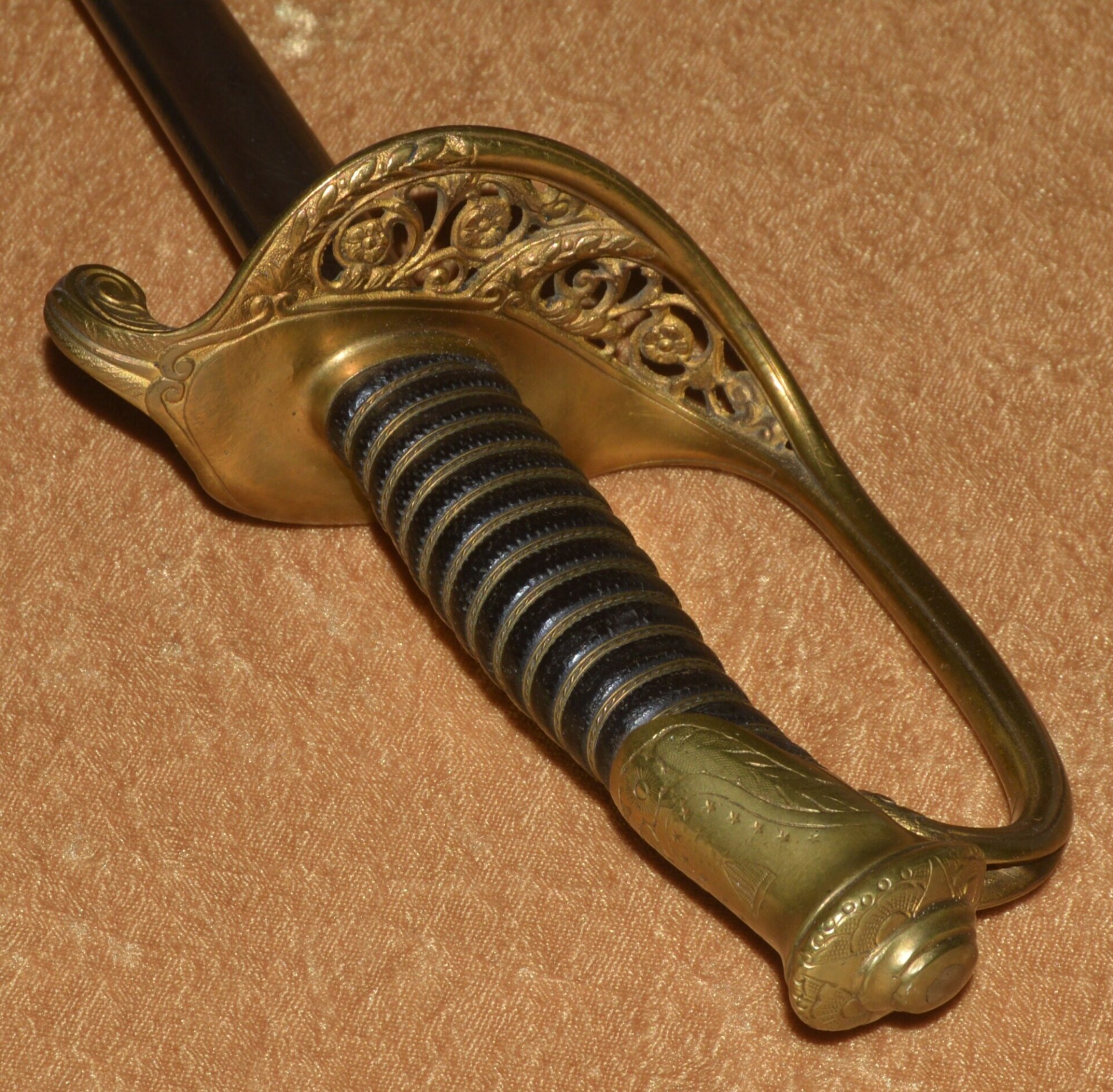
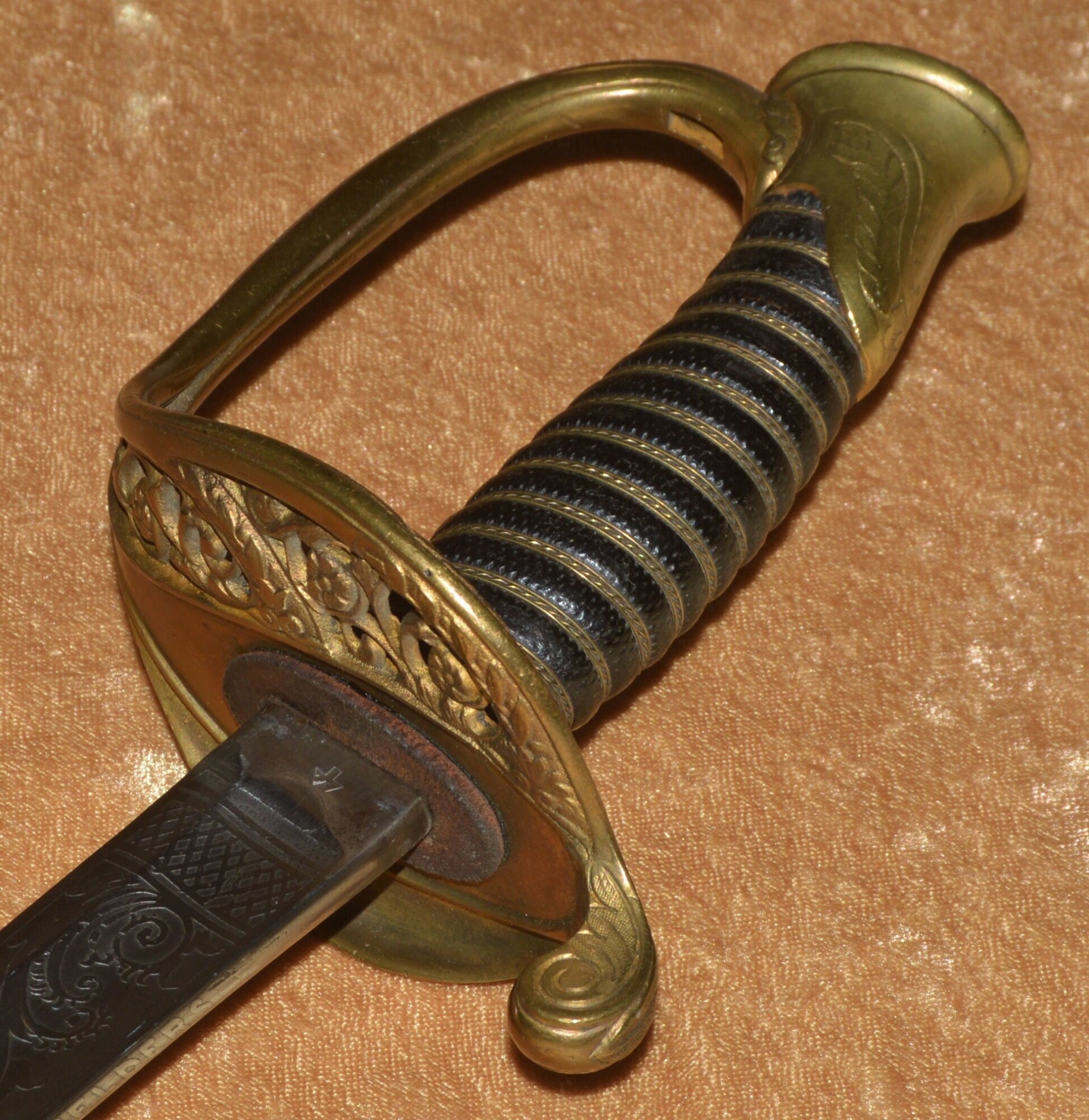
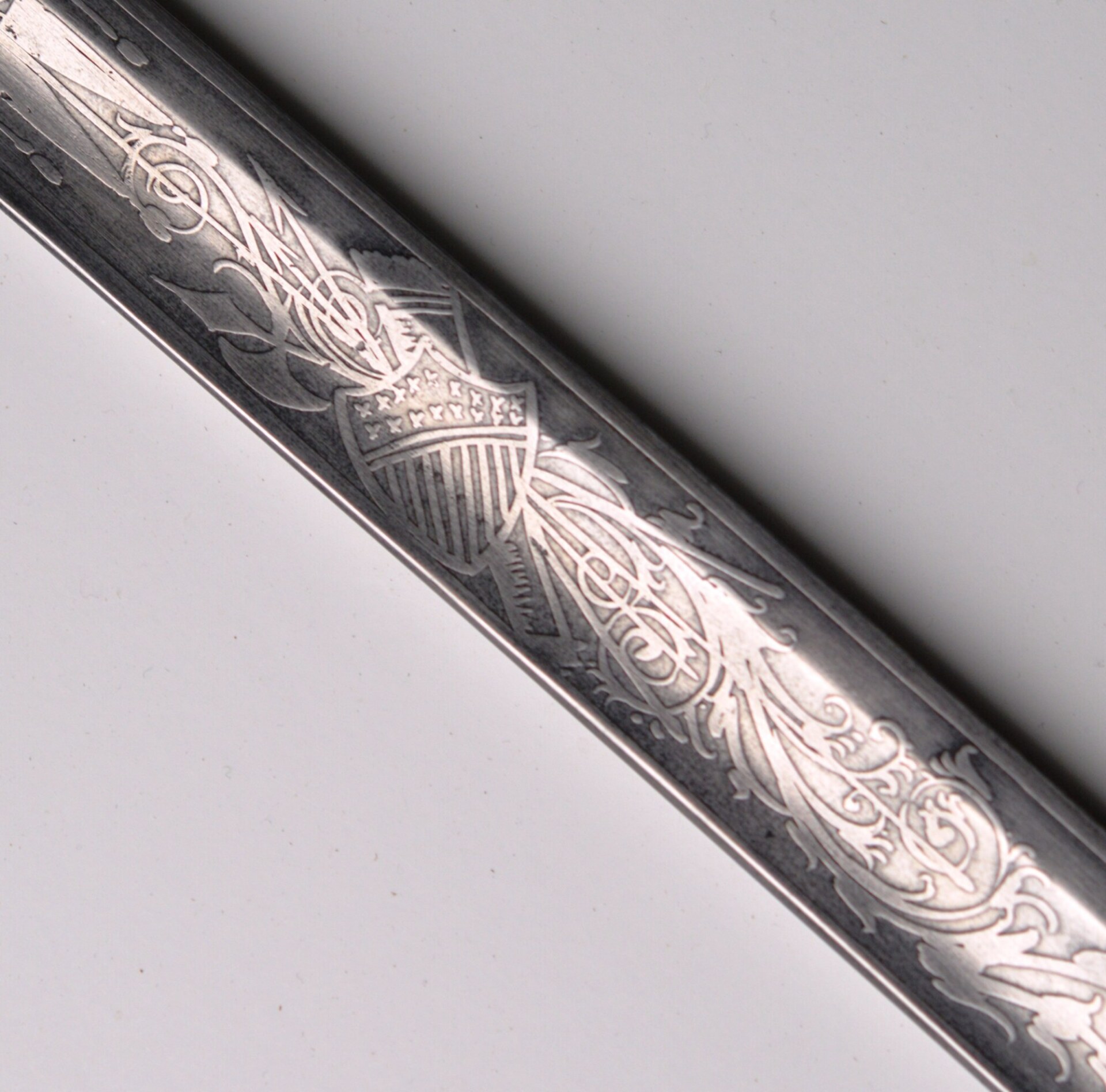
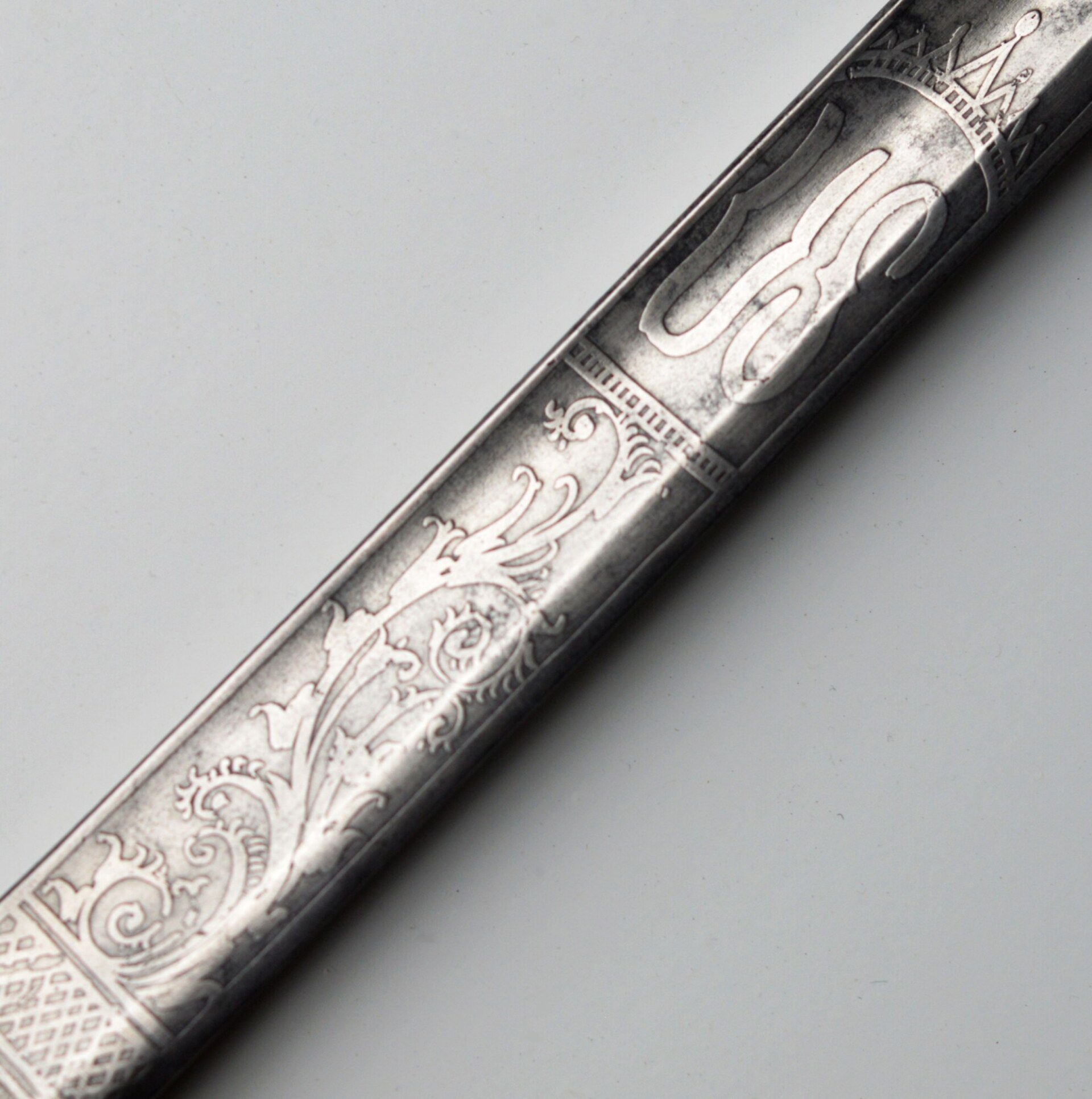
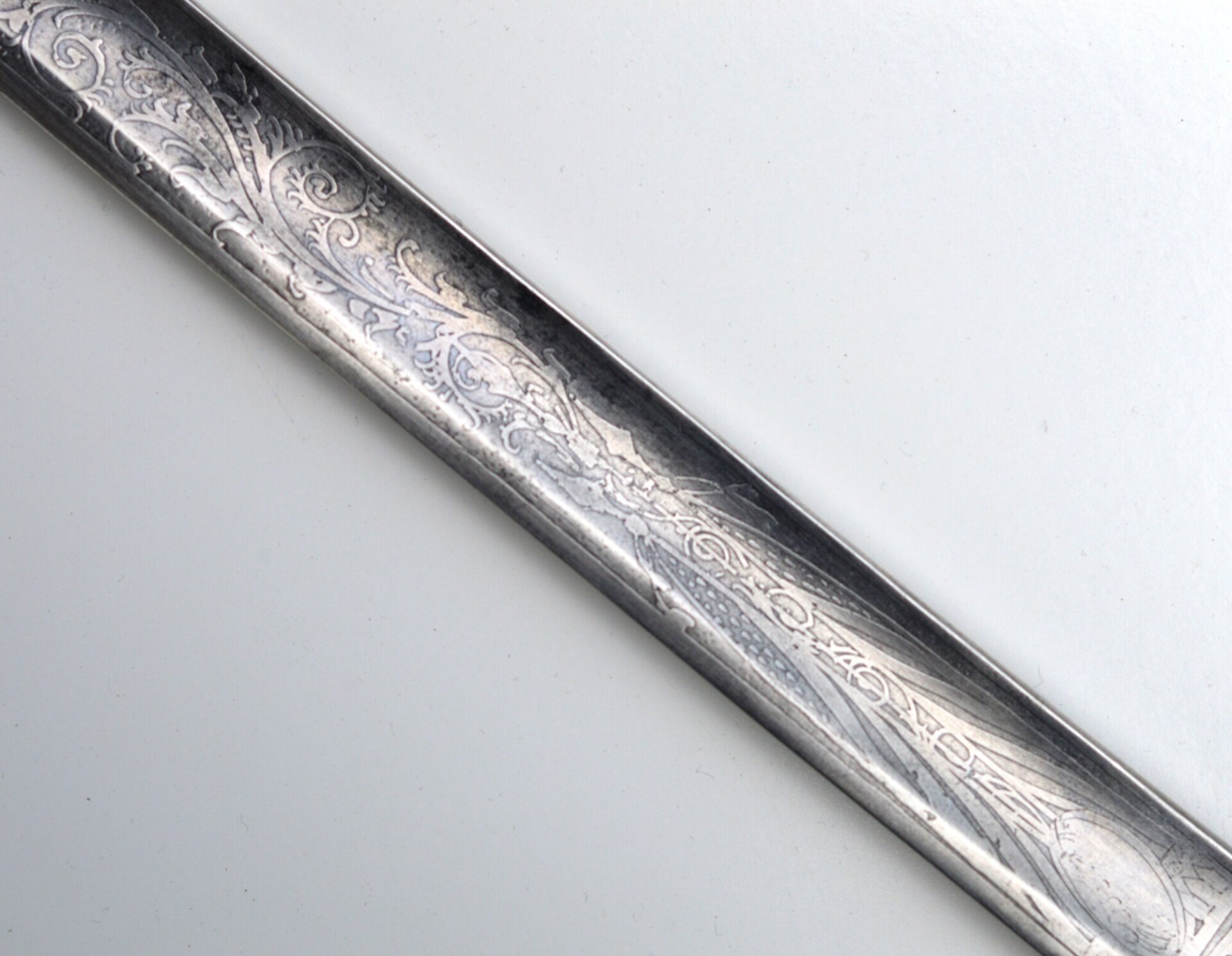
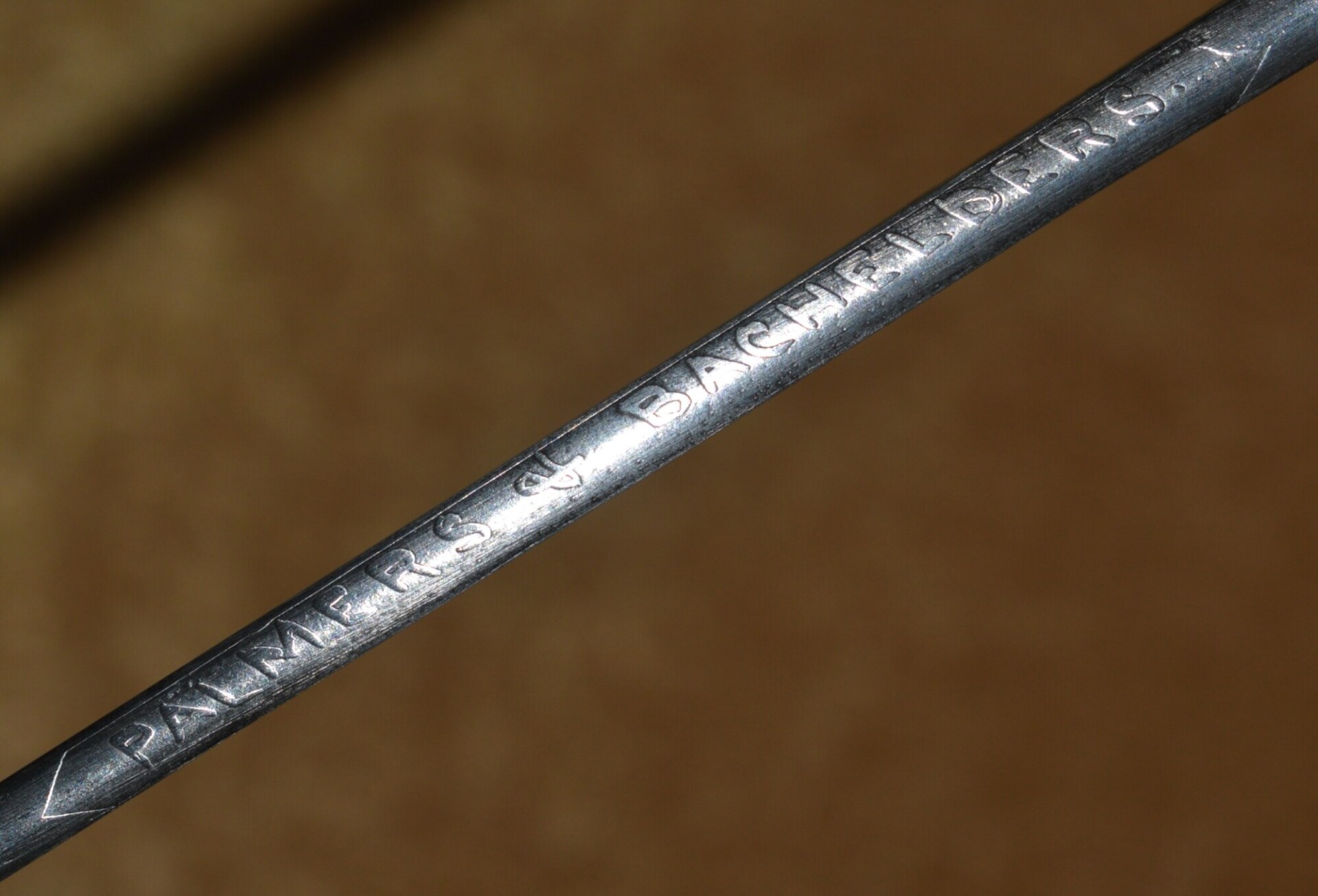
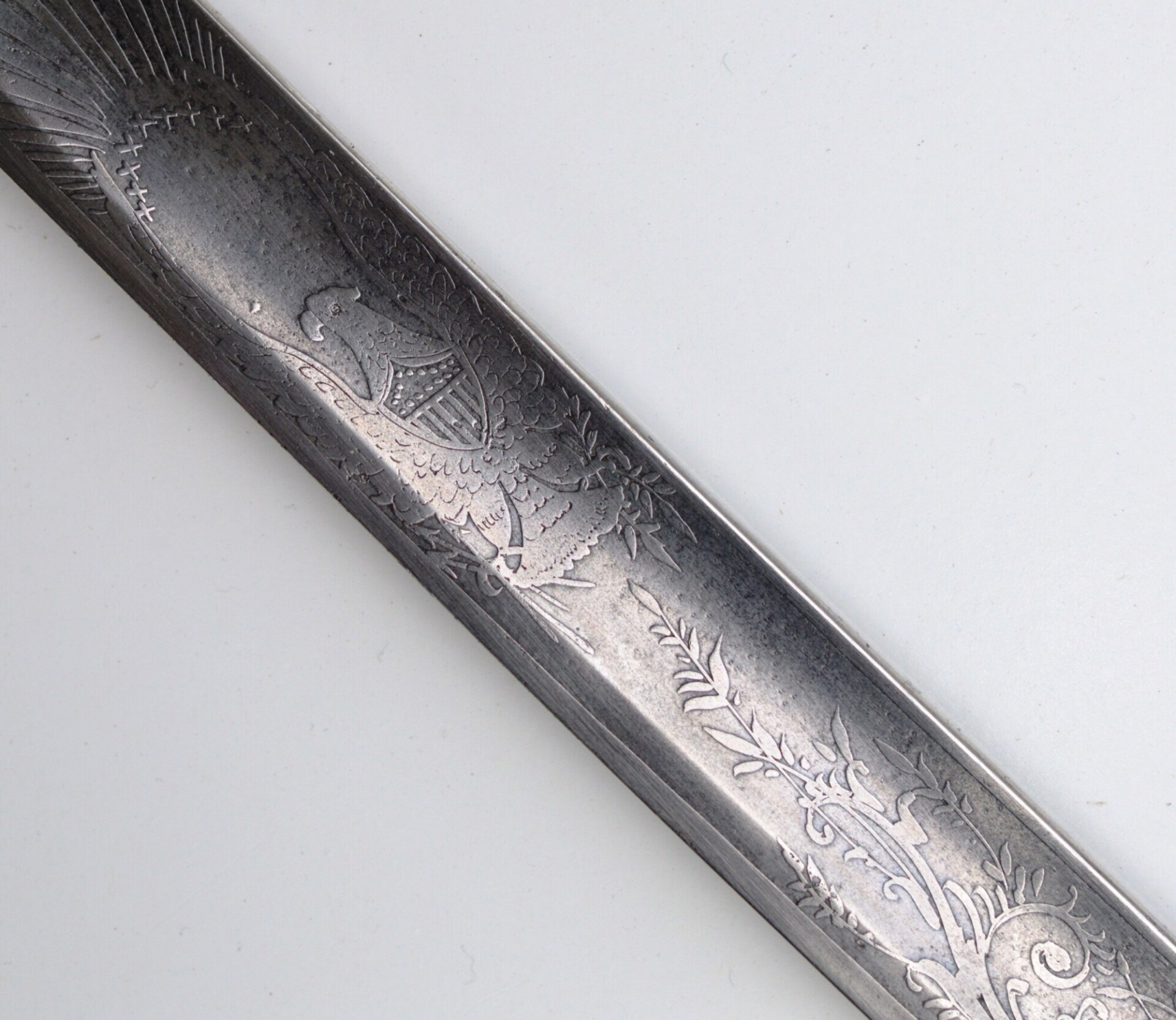
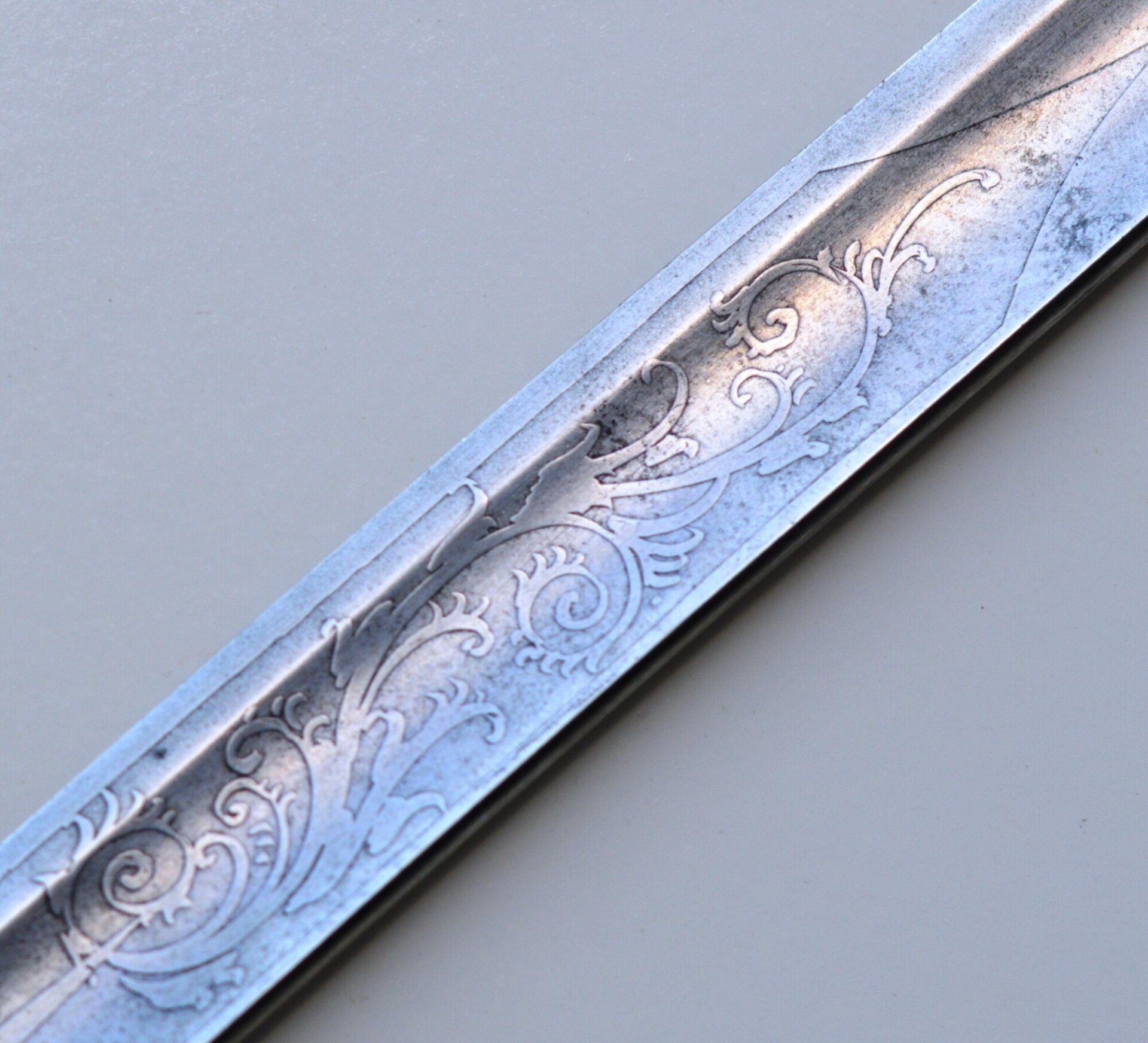
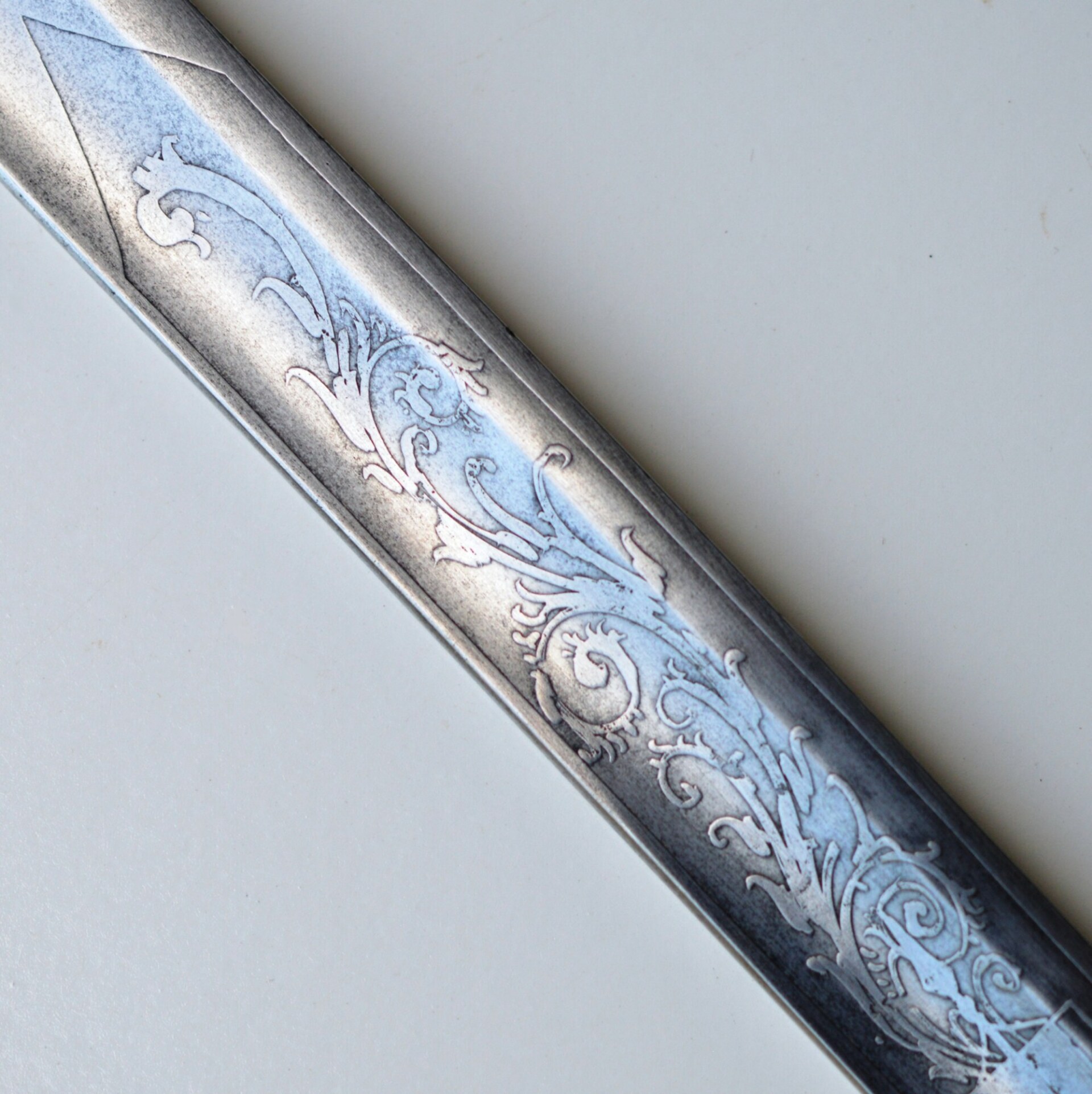
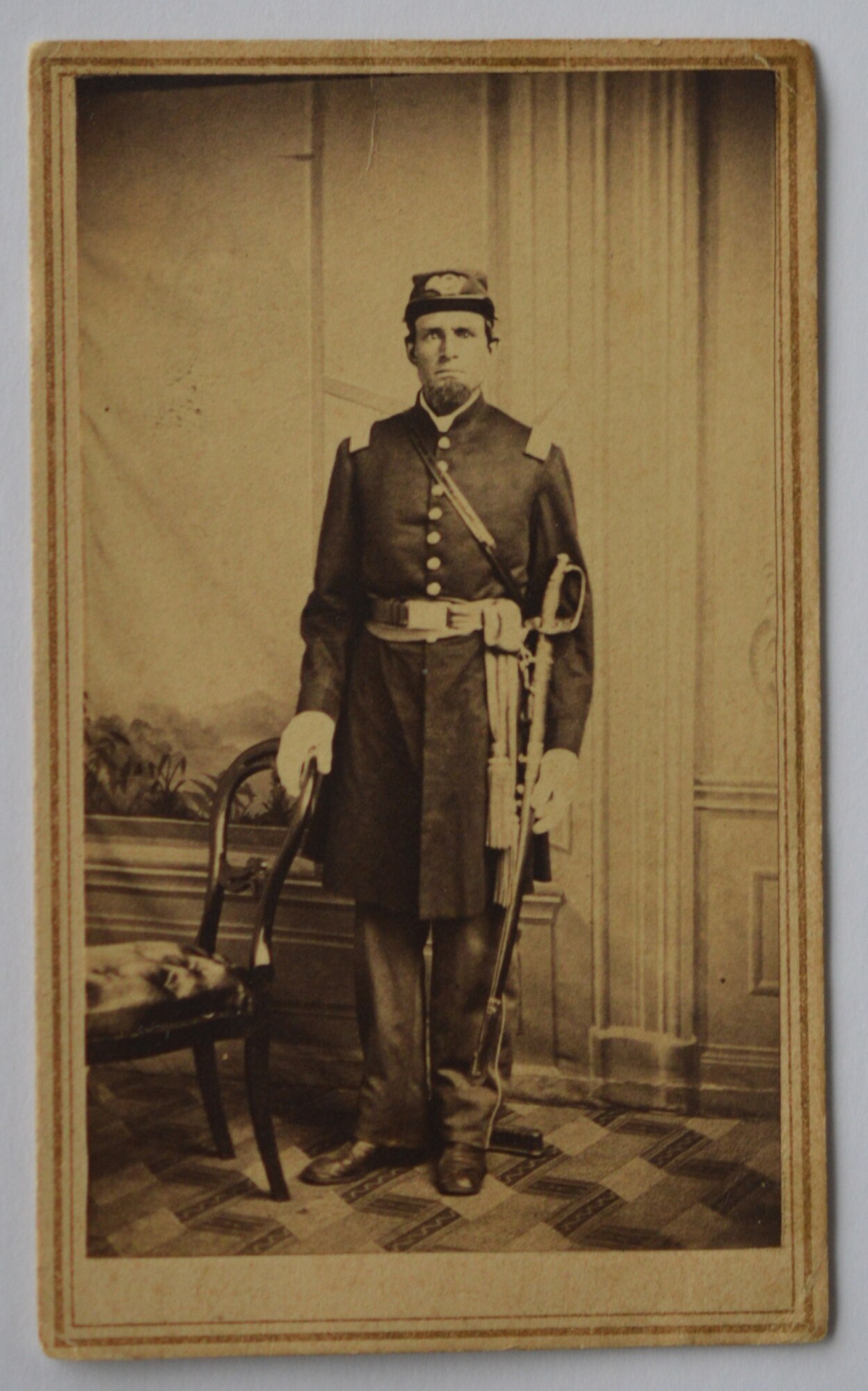
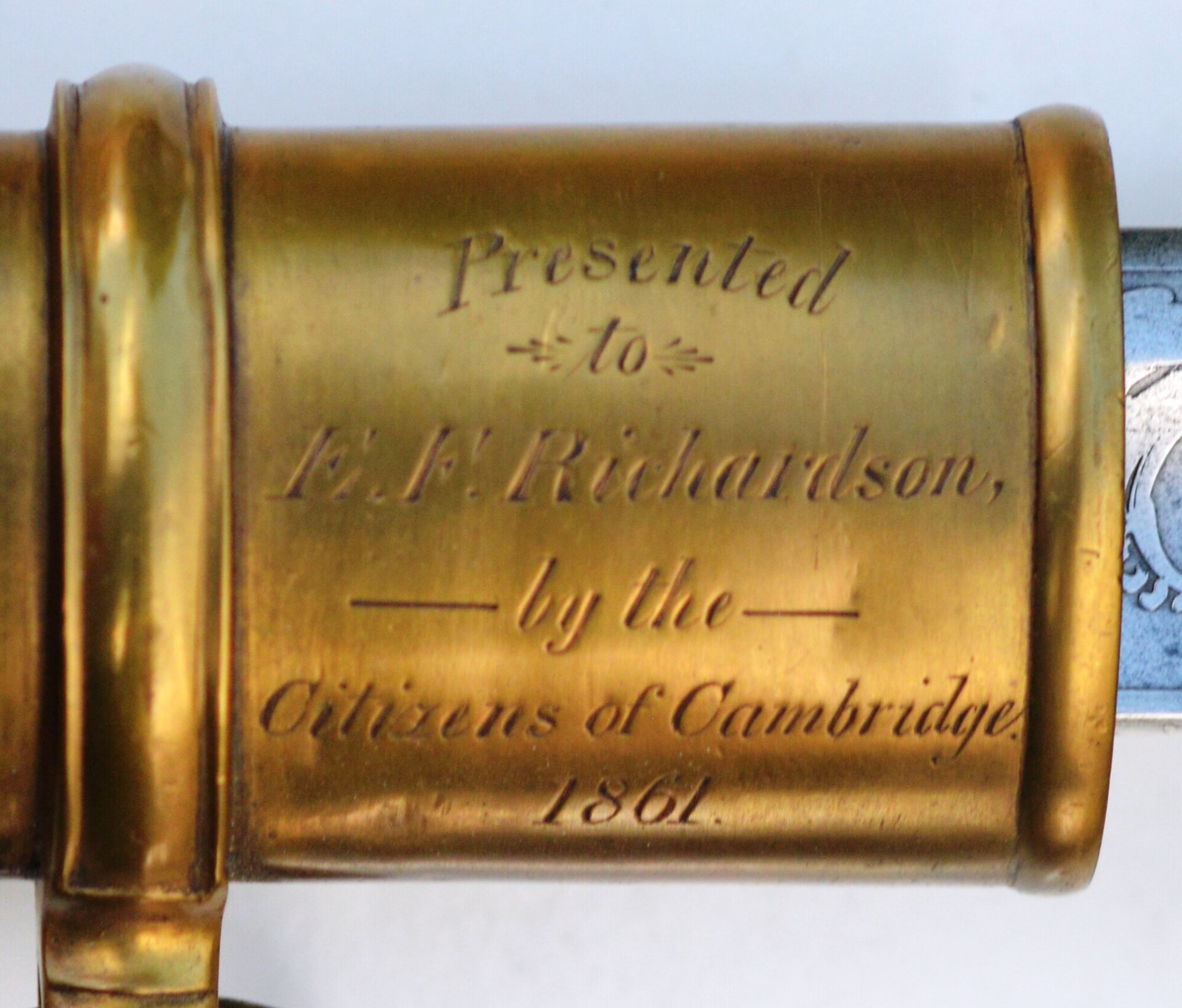
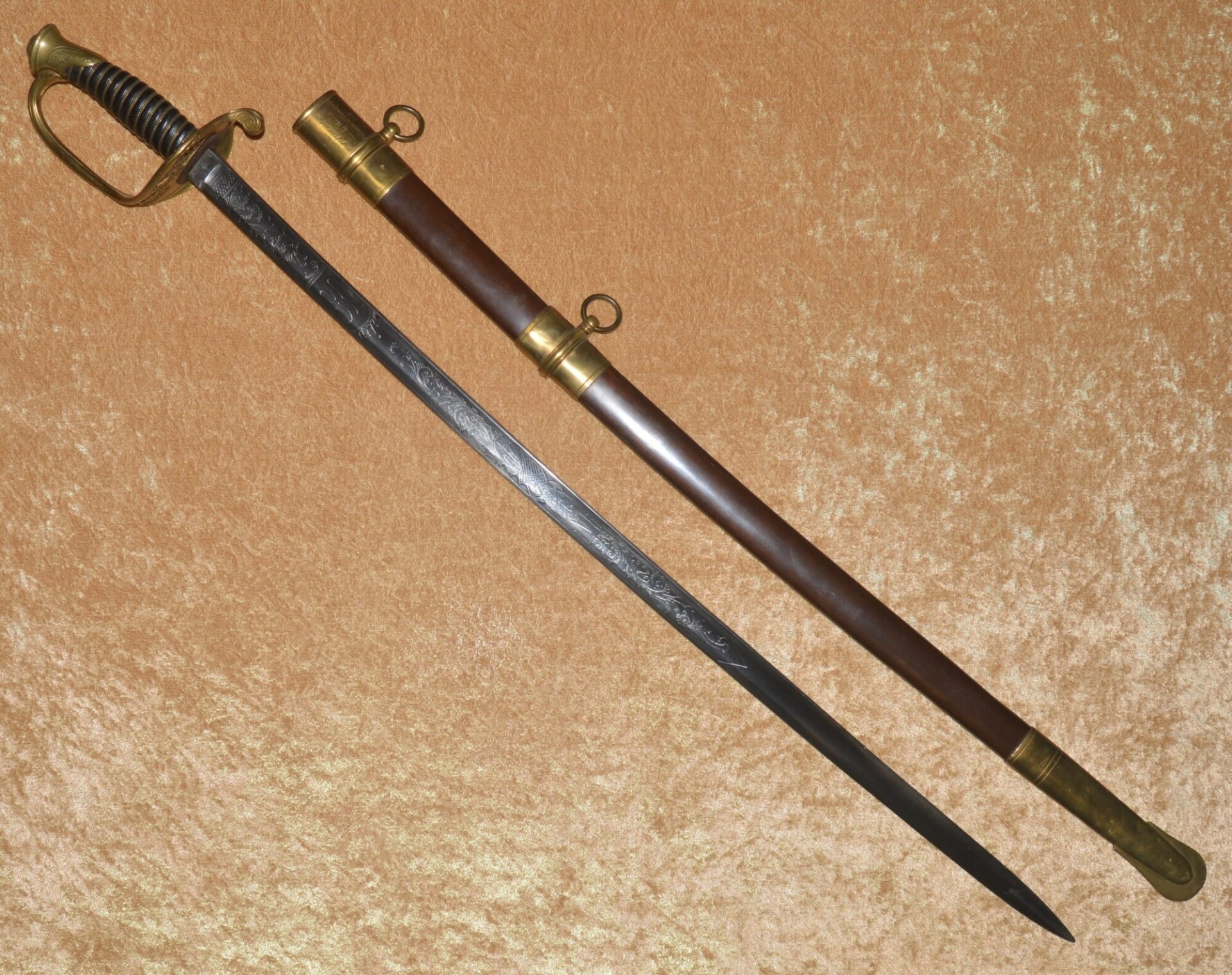
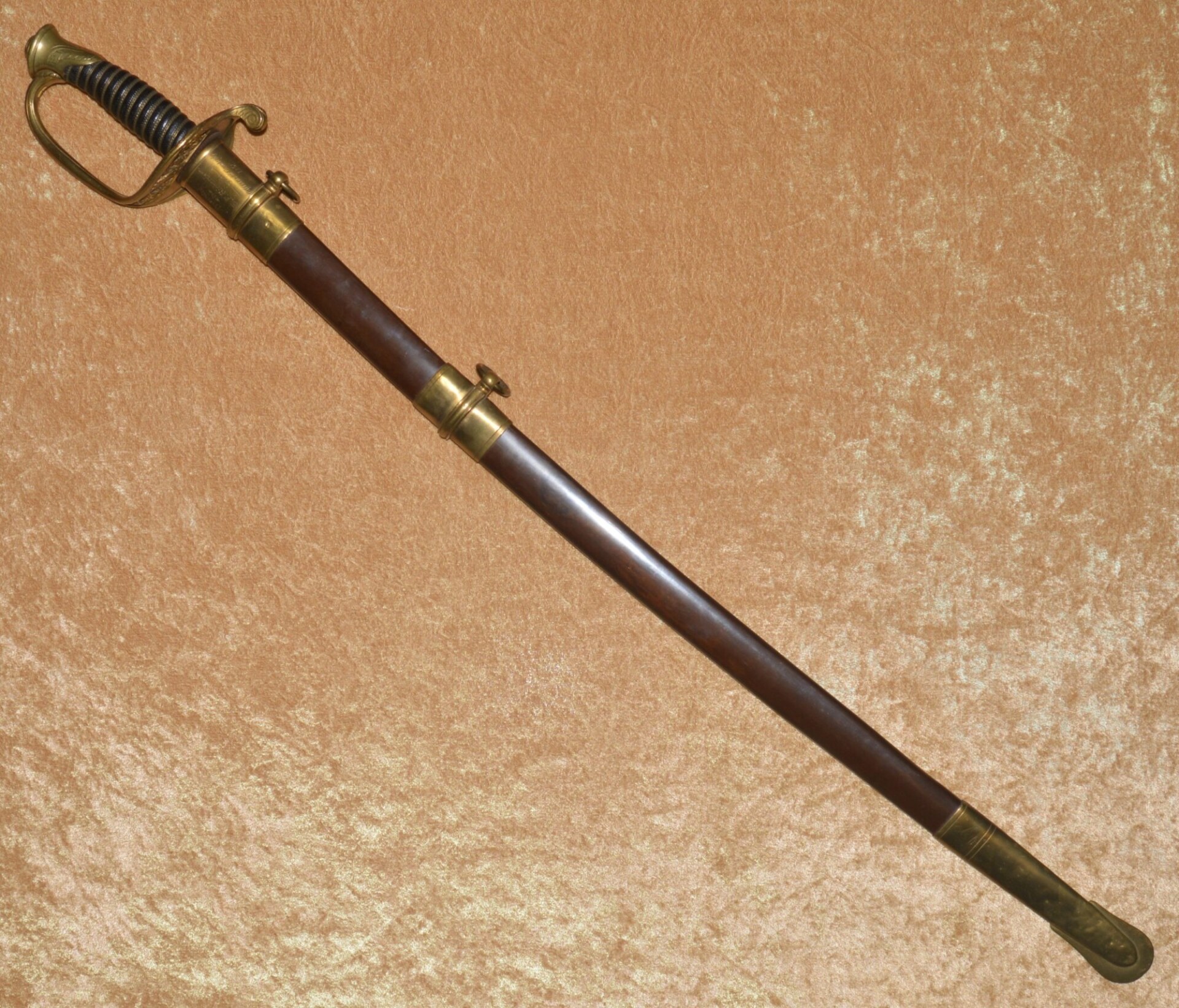
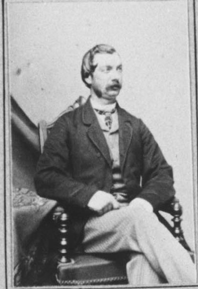
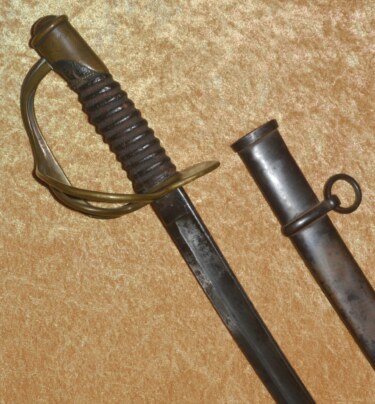 US M1860 Cavalry Saber
US M1860 Cavalry Saber 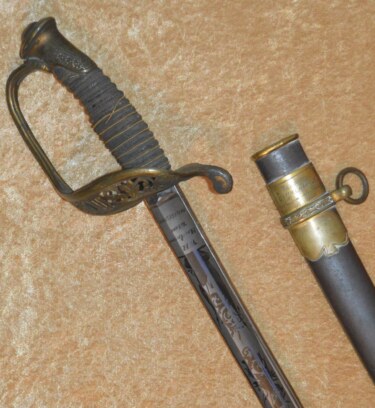 Civil War Presentation US M1850 Staff & Field Officer’s Sword
Civil War Presentation US M1850 Staff & Field Officer’s Sword 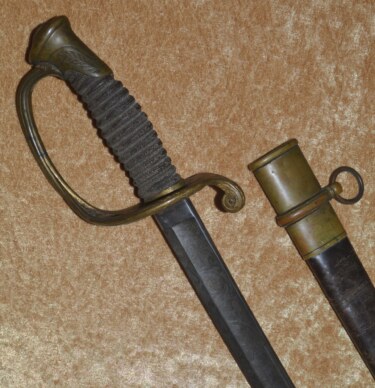 US M1850 Foot Officer Sword by Ames
US M1850 Foot Officer Sword by Ames 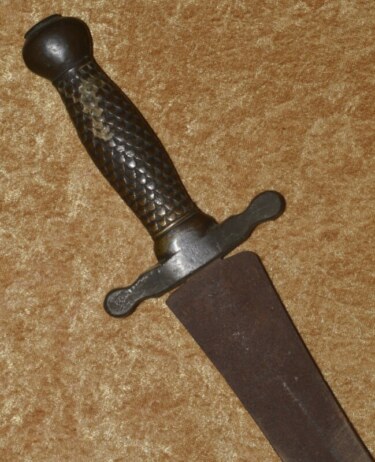 Rare Confederate Froelich Artillery Short Sword
Rare Confederate Froelich Artillery Short Sword